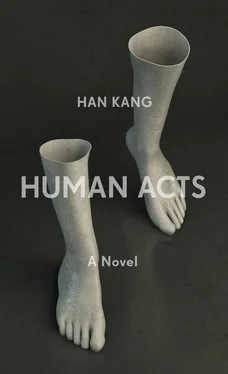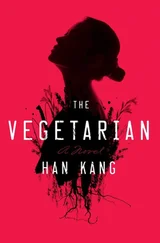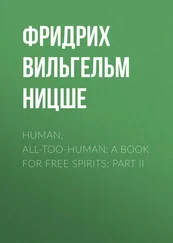Han Kang - Human Acts
Здесь есть возможность читать онлайн «Han Kang - Human Acts» весь текст электронной книги совершенно бесплатно (целиком полную версию без сокращений). В некоторых случаях можно слушать аудио, скачать через торрент в формате fb2 и присутствует краткое содержание. Год выпуска: 2016, Издательство: Portobello Books, Жанр: Современная проза, на английском языке. Описание произведения, (предисловие) а так же отзывы посетителей доступны на портале библиотеки ЛибКат.
- Название:Human Acts
- Автор:
- Издательство:Portobello Books
- Жанр:
- Год:2016
- ISBN:нет данных
- Рейтинг книги:4 / 5. Голосов: 1
-
Избранное:Добавить в избранное
- Отзывы:
-
Ваша оценка:
- 80
- 1
- 2
- 3
- 4
- 5
Human Acts: краткое содержание, описание и аннотация
Предлагаем к чтению аннотацию, описание, краткое содержание или предисловие (зависит от того, что написал сам автор книги «Human Acts»). Если вы не нашли необходимую информацию о книге — напишите в комментариях, мы постараемся отыскать её.
Human Acts
Human Acts — читать онлайн бесплатно полную книгу (весь текст) целиком
Ниже представлен текст книги, разбитый по страницам. Система сохранения места последней прочитанной страницы, позволяет с удобством читать онлайн бесплатно книгу «Human Acts», без необходимости каждый раз заново искать на чём Вы остановились. Поставьте закладку, и сможете в любой момент перейти на страницу, на которой закончили чтение.
Интервал:
Закладка:
Your fingers clutching the still-warm candle stub, you bend down. Fighting the putrid stink, you look deep into the heart of the new flame. Its translucent edges flicker in constant motion, supposedly burning up the smell of death which hangs like a pall in the room. There’s something bewitching about the bright orange glow at its heart, its heat evident to the eye. Narrowing your gaze even further, you centre in on the tiny blue-tinged core that clasps the wick, its trembling shape recalling that of a heart, or perhaps an apple seed.
You straighten up, unable to stand the smell any longer. Looking around the dim interior, you drag your gaze lingeringly past each candle as it wavers by the side of a corpse, the pupils of quiet eyes.
Suddenly it occurs to you to wonder: when the body dies, what happens to the soul? How long does it linger by the side of its former home?
You give the room a thorough once-over, making sure there are no other candles that need to be changed, and walk towards the door.
When a living person looks at a dead person, mightn’t the person’s soul also be there by its body’s side, looking down at its own face?
Just before you step outside, you turn and look back over your shoulder. There are no souls here. There are only silenced corpses, and that horrific putrid stink.
At first, the bodies had been housed not in the gymnasium, but in the corridor of the complaints department in the Provincial Office. There were two women, both a few years older than you, one wearing a wide-collared school uniform and the other in ordinary clothes. You stared blankly, forgetting for a moment why you’d come, as they wiped the bloodied faces with a damp cloth, and struggled to straighten the stiff arms, to force them down by the corpses’ sides.
‘Can I help you?’ the woman in school uniform asked, pulling her mask down below her mouth as she turned to face you. Her round eyes were her best feature, though ever-so-slightly protruding, and her hair was divided into two braids, from which a mass of short, frizzy hairs were escaping. Damp with sweat, her hair was plastered to her forehead and temples.
‘I’m looking for a friend,’ you said, holding out the hand which you’d been using to cover your nose, unused to the stench of blood.
‘Did you arrange to meet here?’
‘No, he’s one of those …’
‘I see. You can come and have a look, if you like.’
You systematically examined the faces and bodies of the twenty-odd people lying against the corridor wall. You had to look closely if you wanted to be sure; your eyes soon started to feel the strain, and you had to keep blinking to try and refocus.
‘Not here?’ the other woman asked, straightening up. She had the sleeves of her pale green shirt rolled up to the elbows. You’d assumed she was a similar age to the young woman in school uniform; seeing her without the mask on, though, you could see she was older, more like twenty. Her skin was somewhat sallow, and she had a slender, delicate neck. Only the look in her eyes was tough and vigorous. And there was nothing feeble about her voice.
‘No.’
‘Have you tried the mortuary at Jeonnam, and the one at the Red Cross hospital?’
‘Yes.’
‘What about this friend’s parents?’
‘His mother passed away, and his father works in Daejeon; he lives in our annex with his older sister.’
‘They still won’t put long-distance calls through?’
‘No, and I’ve tried a few times.’
‘Well, what about your friend’s sister?’
‘She hasn’t been home since Sunday; I came here to look for her too. One of our neighbours said they saw my friend get hit yesterday, when the soldiers were shooting.’
‘Mightn’t he just have been wounded and admitted to hospital?’ the woman in school uniform interjected, without looking up.
You shook your head.
‘In that case he would have found a way to call us. He’d know we were worrying about him.’
‘Come by again tomorrow, and the next couple of days,’ said the woman in the pale green shirt. ‘Apparently all the dead will be brought here from now on. They say there’s no room left in the morgues.’
The woman in school uniform wiped the face of a young man whose throat had been sliced open by a bayonet, his red uvula poking out. She brushed the palm of her hand down over his staring eyes, closing them, rinsed the cloth in a bucket of water and wrung it out viciously. The water that came out was dark with blood, splattering outside the bucket. The woman in the green shirt stood up.
‘How about you give us a hand, if you have time?’ she asked. ‘Just for today. We don’t have enough people. It’s not difficult … you just need to cut up that cloth over there and use it to cover the bodies. And when someone comes looking for a friend, like you did, you uncover them again. The faces are badly injured, so they’ll need to get a good look at their bodies and clothes to decide whether it’s who they think it is.’
From that day on, you became one of the team. Eun-sook, as you’d guessed, was in her final year of high school. Seon-ju, the woman in the green shirt, was a machinist at a dressmaker’s on the main shopping street; she’d been left in the lurch when the boss had decided that he and his son, who’d been studying at one of the universities here, should go and stay with a relative outside the city. Both Eun-sook and Seon-ju had gone to give blood at Jeonnam University Hospital after hearing a street broadcast saying that people were dying of blood loss. There, hearing that the Provincial Office, now being run by civilians, was short of hands, and in the confusion of the moment, they’d taken on the task of dealing with the corpses.
In the classroom, where seats were assigned in order of height, you were always the one at the very front — in other words, the shortest. Since March, when you’d started your third year at middle school, you’d finally hit puberty, resulting in a slightly lower voice and a fair-to-middling growth spurt, but you still looked younger than your age. Jin-su’s work mostly kept him confined to the briefing room; the first time he saw you, he looked surprised.
‘You’re a first-year, aren’t you? This is no place for you.’ Jin-su’s deeply lidded eyes and long lashes were almost feminine; the university in Seoul he was attending was temporarily closed, so he’d come down to Gwangju.
‘No,’ you told him, ‘I’m a third-year. And I don’t have a problem with the work here.’
This wasn’t bravado; there was nothing technically difficult about the tasks you’d been assigned. Seon-ju and Eun-sook had already done most of the heavy work, which involved covering plywood or Styrofoam boards with plastic, then lifting the corpses on top of these boards. They also washed the necks and faces with a cloth, ran a comb through the matted hair to tidy it a bit, then wrapped the bodies in plastic in an effort to combat the smell. In the meantime, you made a note in your ledger of gender, approximate age, what clothes they were wearing and what brand of shoes, and assigned each corpse a number. You then wrote the same number on a scrap of paper, pinned it to the corpse’s chest, and covered them up to the neck with one of the white cloths. Eun-sook and Seon-ju would then help you pull them over to the wall. Jin-su, who seemed to be permanently rushed off his feet, would come striding up to you several times a day, wanting to transfer the information you’d recorded in your ledger onto posters, to put up at the main entrance to the building. A lot of the people who came looking for someone had either seen those posters themselves or been told about them by someone else. In cases of a positive identification, you would retreat to a respectful distance to wait for the sobbing and wailing to pass. As the corpses had only been given a cursory treatment, it was left to the bereaved to stop their noses and ears with cotton wool and give them a fresh change of clothing. Once they had been thus simply dressed and placed into a coffin, it was your job to oversee the transfer to the gym, and make a note of everything in your ledger.
Читать дальшеИнтервал:
Закладка:
Похожие книги на «Human Acts»
Представляем Вашему вниманию похожие книги на «Human Acts» списком для выбора. Мы отобрали схожую по названию и смыслу литературу в надежде предоставить читателям больше вариантов отыскать новые, интересные, ещё непрочитанные произведения.
Обсуждение, отзывы о книге «Human Acts» и просто собственные мнения читателей. Оставьте ваши комментарии, напишите, что Вы думаете о произведении, его смысле или главных героях. Укажите что конкретно понравилось, а что нет, и почему Вы так считаете.












